Vocabulary expansion Writing Worksheets for Ages 6-9 - Page 3
62 filtered results
-
From - To
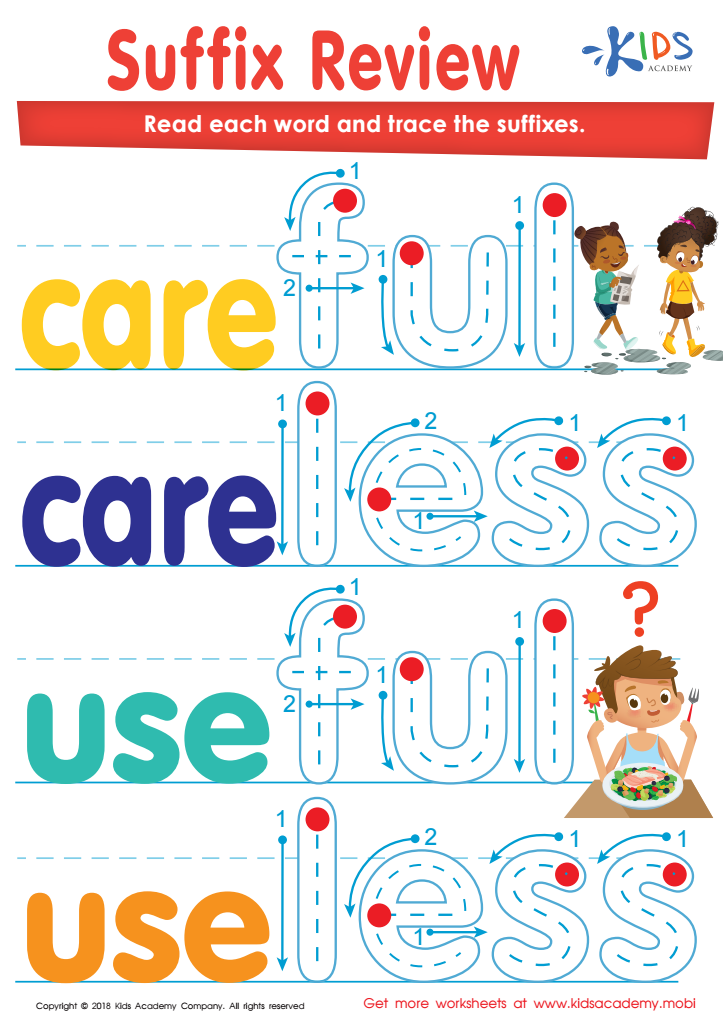

Suffix Review Worksheet
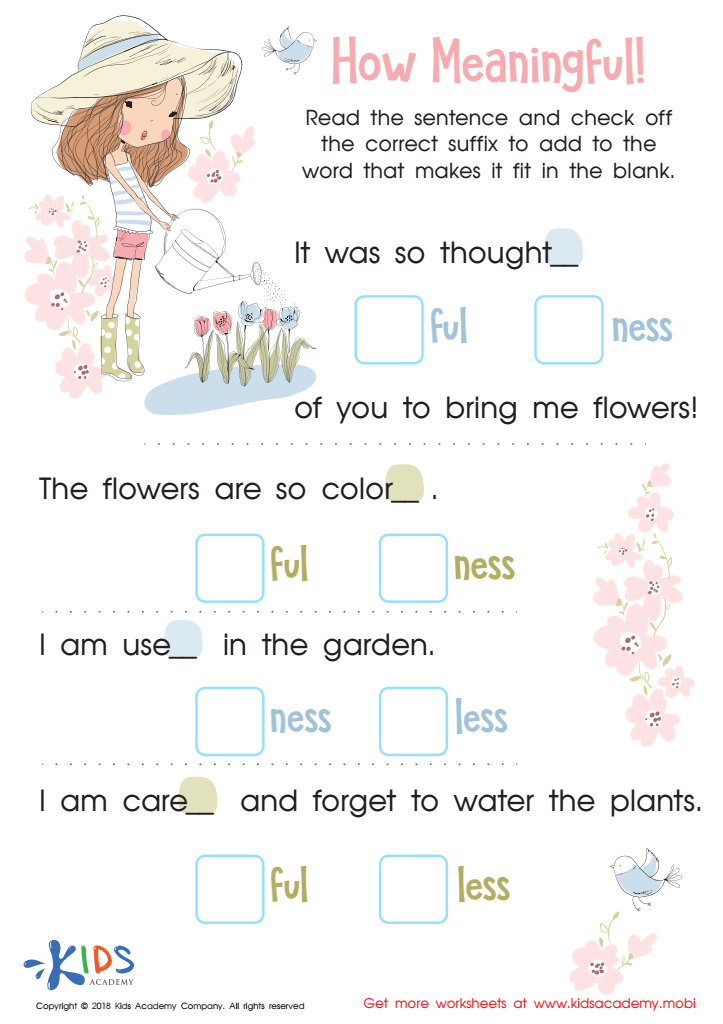

How Meaningful! Worksheet
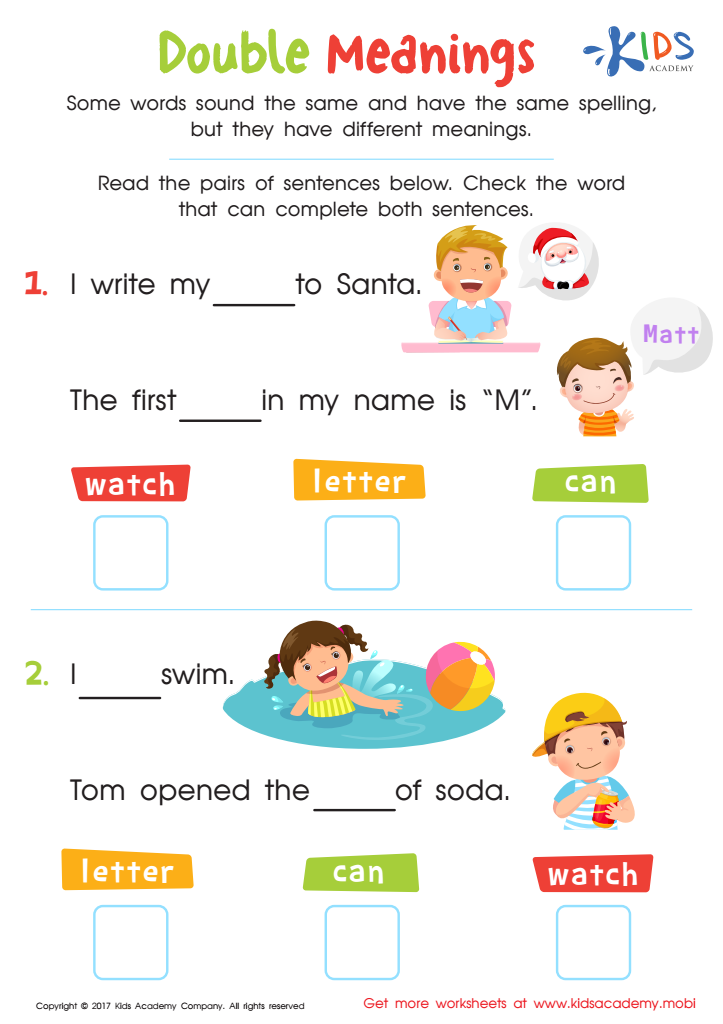

Double Meanings Worksheet
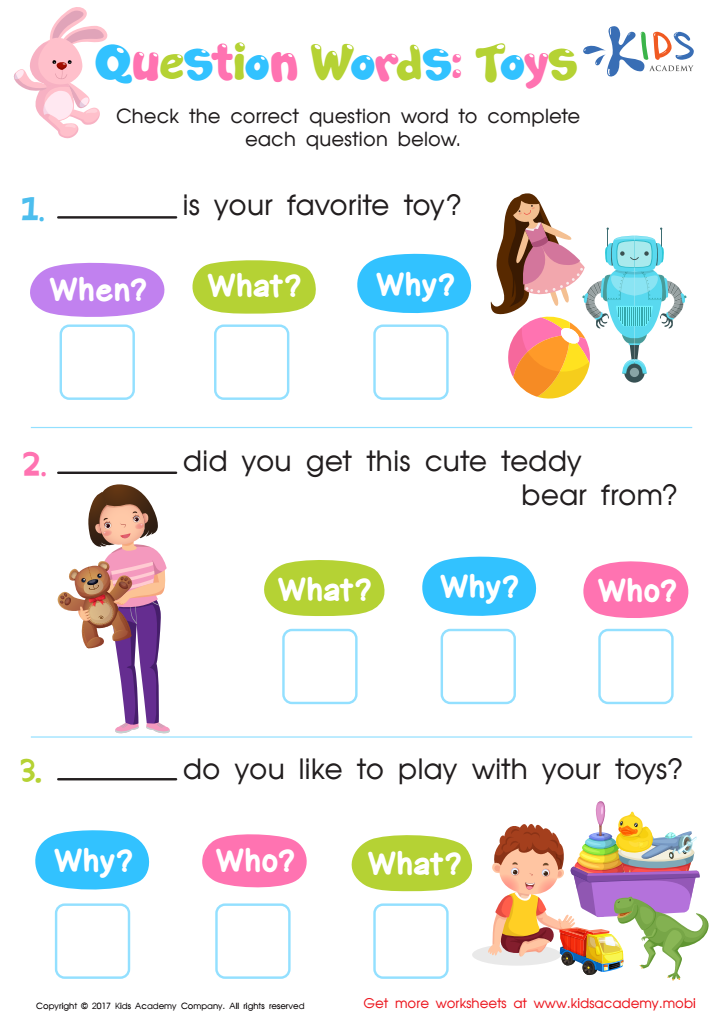

Question Words: Toys Worksheet
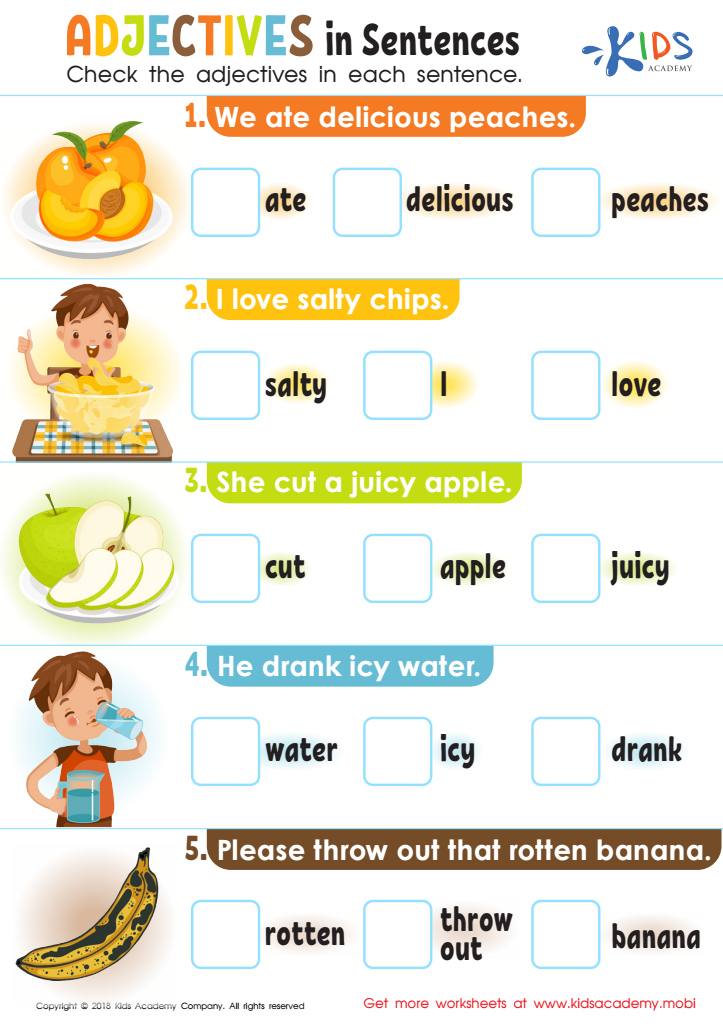

Adjectives in Sentences Worksheet
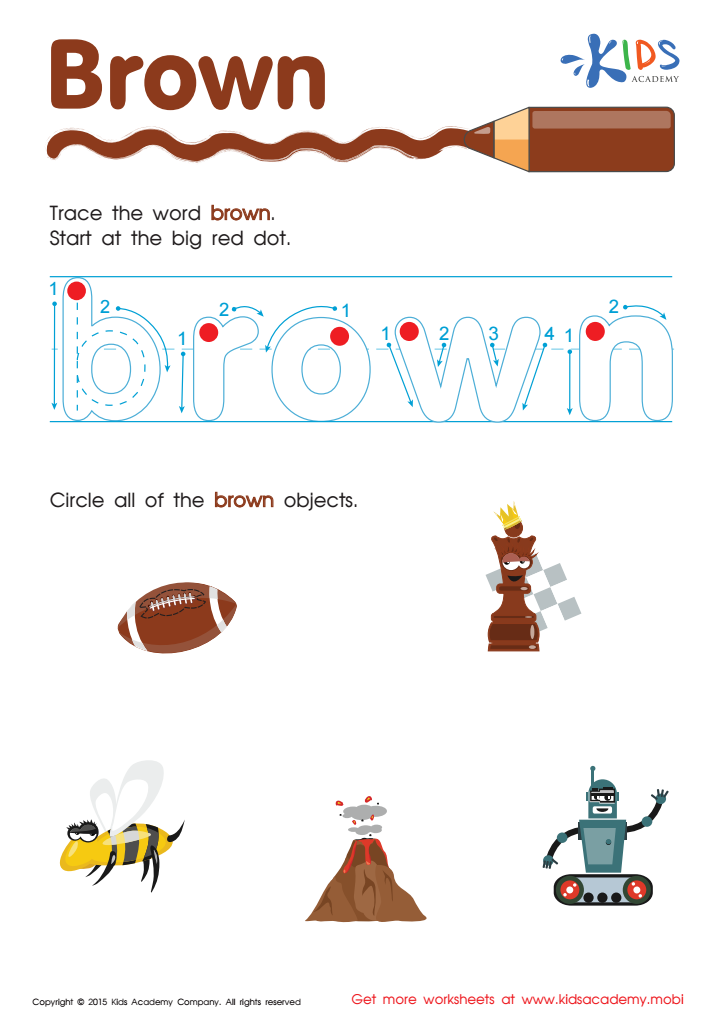

Brown Tracing Color Words Worksheet
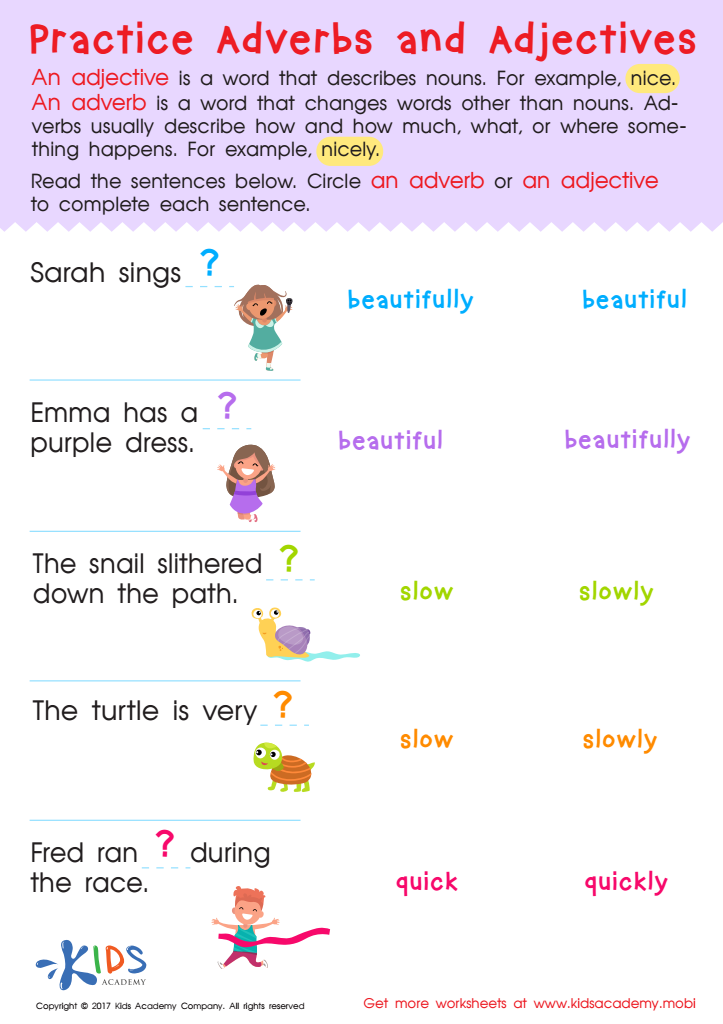

Adverbs and Adjectives Worksheet
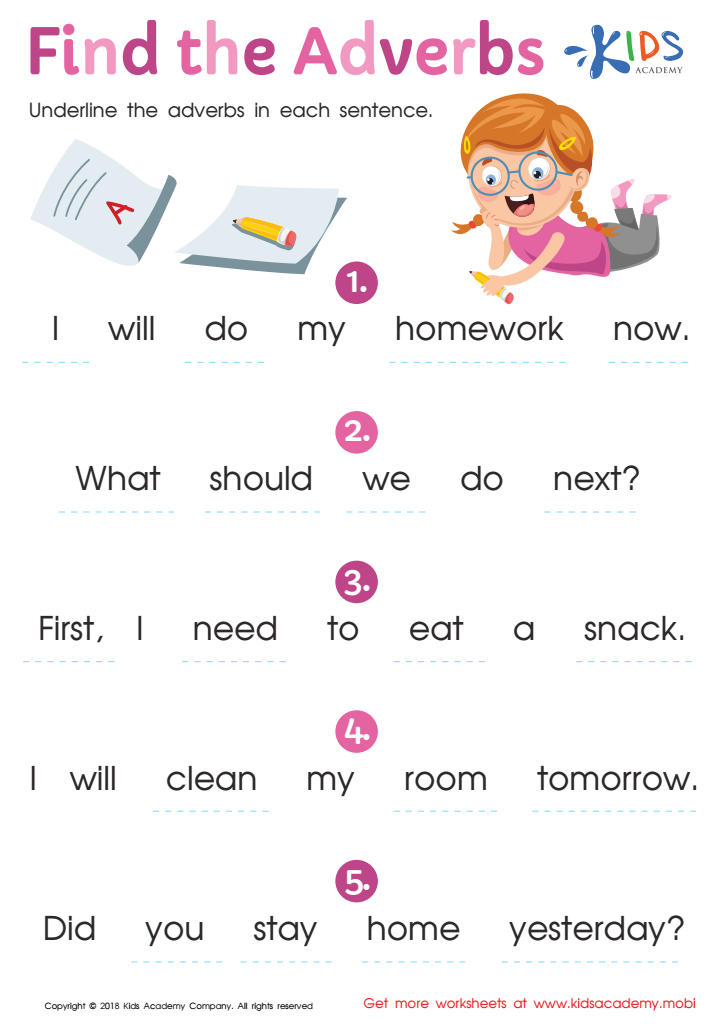

Finding the Adverbs Worksheet
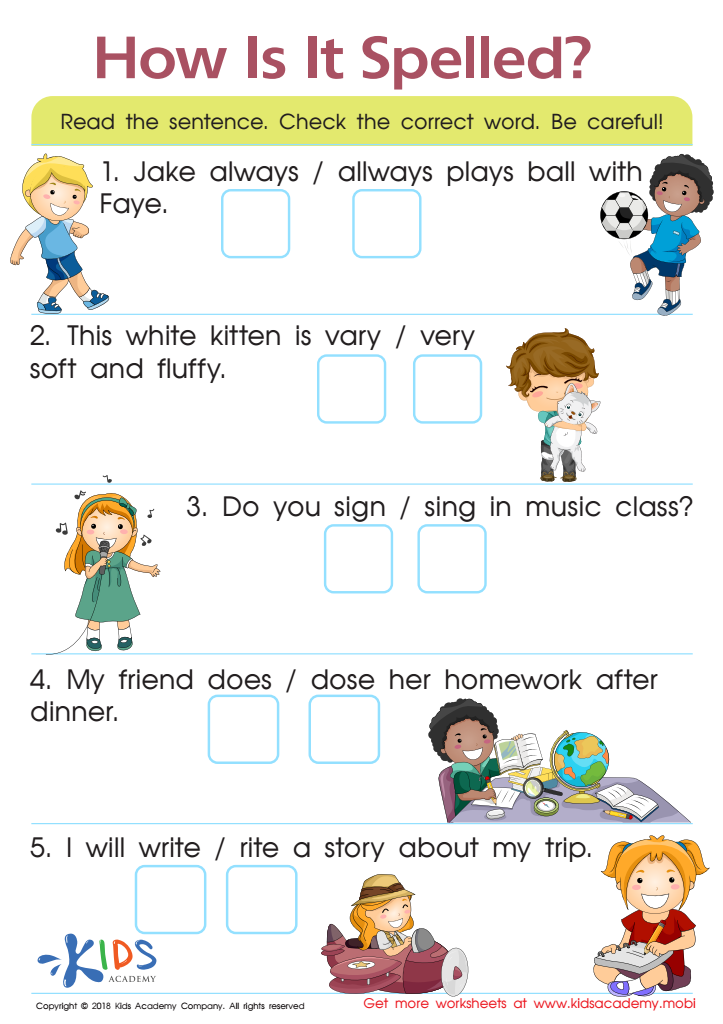

How is it spelled? Worksheet
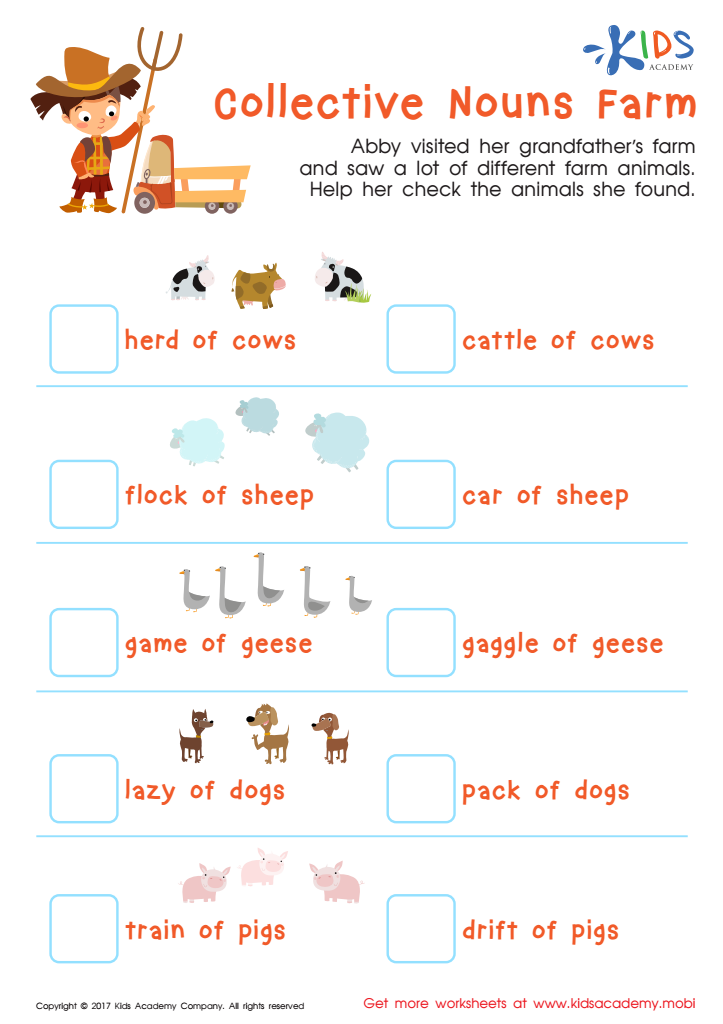

Collective Nouns Worksheet
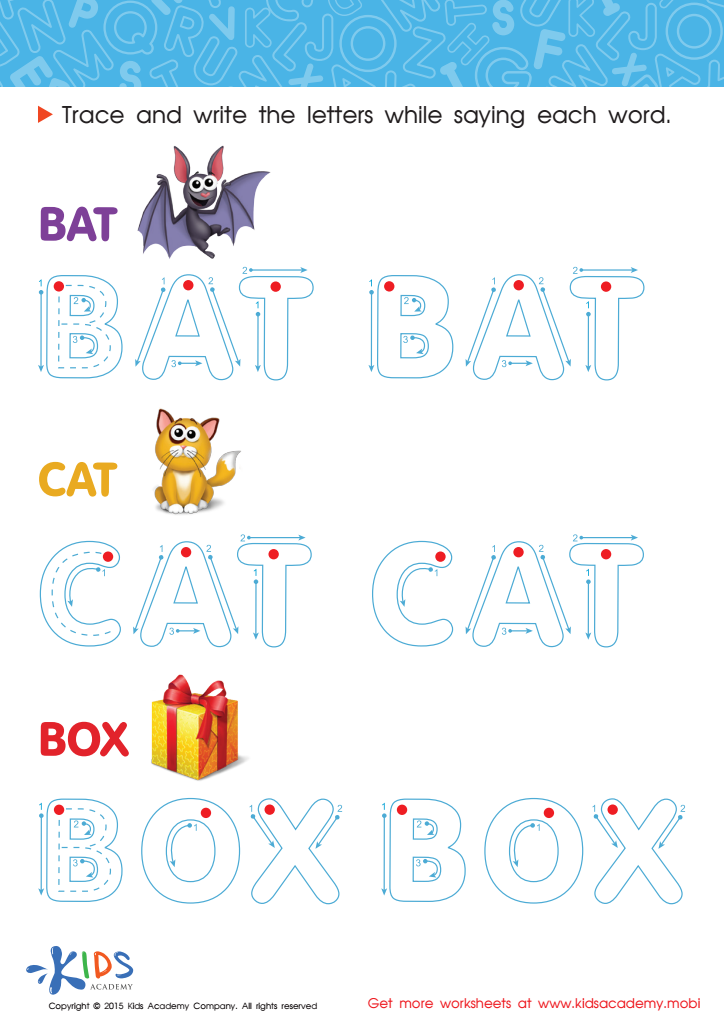

A Bat, a Cat and a Box Spelling Worksheet
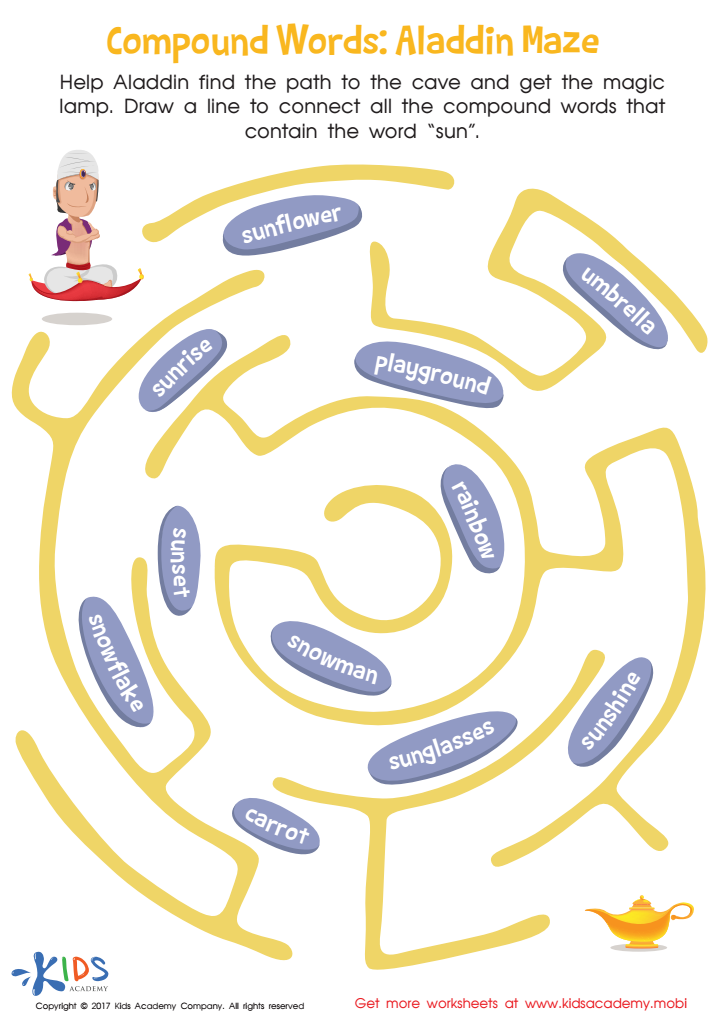

Compound Aladdin Maze Word Structure Worksheet
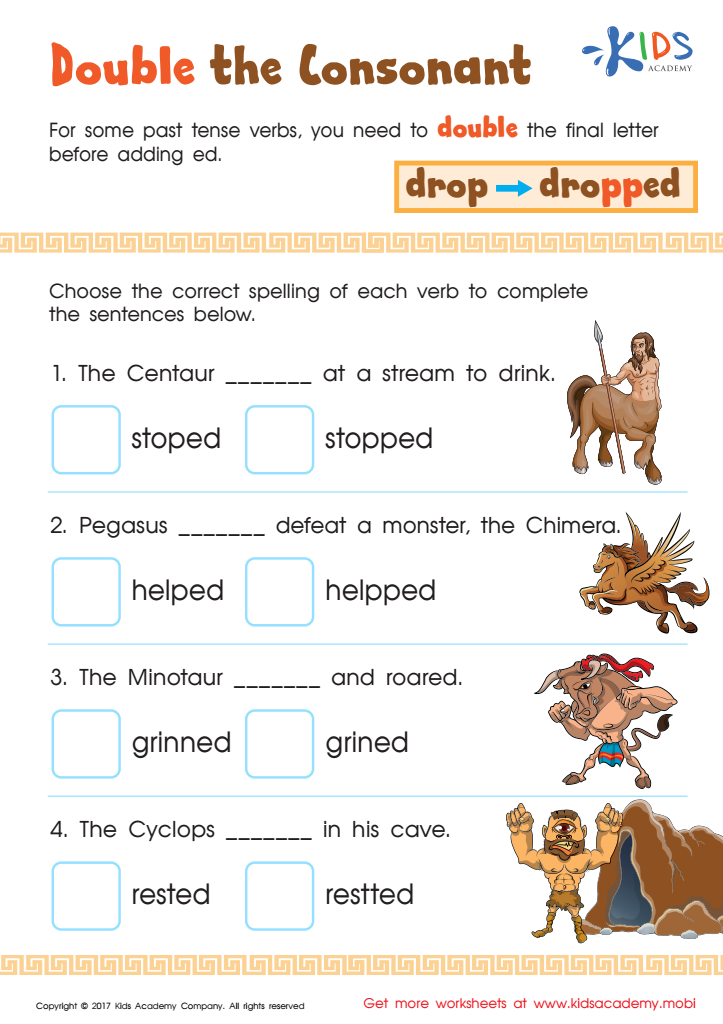

Double Consonant Spelling Worksheet
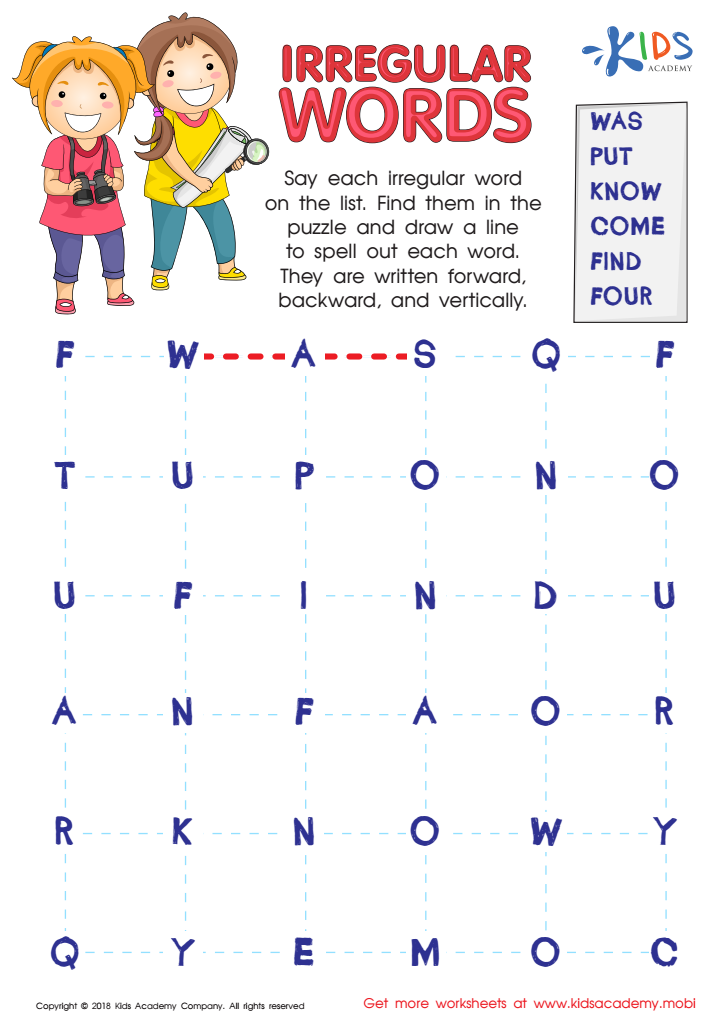

Irregular Words Worksheet
Vocabulary expansion at ages 6-9 is crucial for several reasons, impacting both academic and personal development. Firstly, a rich vocabulary enhances reading comprehension. When children understand more words, they can grasp stories, instructions, and information more deeply, boosting their overall learning. This foundational skill supports future academic success, as most subjects, from science to social studies, heavily rely on language proficiency.
Furthermore, effective vocabulary empowers children to express themselves more clearly and confidently. This improves their ability to participate in discussions, ask questions, and share ideas, essential skills for classroom engagement and social interactions. Enhanced communication fosters better relationships with peers and adults, promoting emotional and social development.
Vocabulary growth also stimulates cognitive development. Learning new words encourages children to think critically and creatively, enriches their imagination, and helps them make connections between ideas. This mental stretching lays the groundwork for problem-solving and abstract thinking.
Parents and teachers play vital roles in this process. At home, reading diverse books, engaging in conversations, and playing word games can significantly boost vocabulary. In school, teachers can create a language-rich environment through interactive lessons and personalized feedback. By investing in vocabulary expansion during this critical period, parents and teachers set children on a path to lifelong learning and effective communication.

 Assign to My Students
Assign to My Students
















